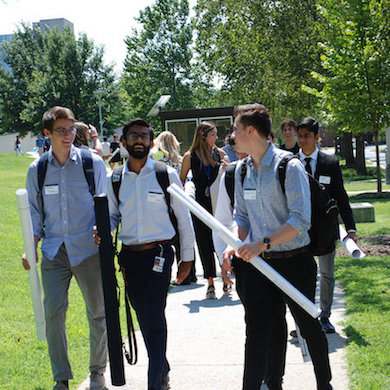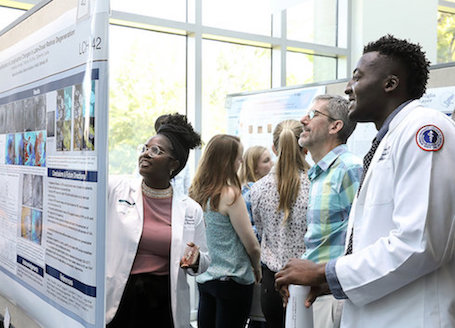Academic Resources
Success as a Graduate Student

Here are several articles and resources that can assist you in your professional development and help you meet with success in your career.
- How to succeed in science by Jonathan Yewdell
- Catalyzing the transition from student to scientist - a model for graduate research training by Daniel J. Isaak and Wayne A. Hubert
- On being a successful graduate student in the sciences by John N. Thompson
- Stress in biomedical research: six impossible things by Douglas R. Green
- OITE Careers Blog
- Penn Biomedical Graduate Studies Career Development
Graduate Student Fellowships
If you are interested in pursuing a career in academia, it is highly encouraged that you pursue grant opportunities during your training. One thing to keep in mind is that a Cancer Research Training Award (CRTA) fellowship is considered a grant. As such, there are some restrictions regarding non-NIH awards. Before you apply for outside funding, please discuss with your PI, your Training Director, or the NIH ethics office to make sure that you stay within the NIH ethics guidelines for trainees. Penn Biomedical Graduate Studies students have had success in obtaining the following grants/fellowships.
- NIH Fogarty International Center
- GrantsNet
- National Science Foundation
- Paul & Daisy Soros Fellowships for New Americans
- Ford Foundation Fellowship Programs
- Department of Defense Science, Mathematics and Research for Transformation (SMART)
- American Heart Association (AHA) Predoctoral Fellowship
- National Defense Science and Engineering Graduate (NDSEG)
- HHMI Gilliam Fellowships for Advanced Study: Penn Biomedical Graduate Studies solicits a call to eligible students and students are nominated by the institutional coordinator.
-
Blavatnik Family Foundation Fellowships: The Blavatnik Fellowships are funded by a generous gift from the Blavatnik Family Foundation to support up to six students per year. Students in years 3-5 may be nominated by their graduate group. An announcement is made to BGS faculty in early spring about the nomination process.
Additional Training Opportunities at the NIH

In addition to the training offices, there are a multitude of resources available to you at the NIH.
- NIH Intramural Research Program Collaborative Research Exchange (CREx) is an online marketplace which you can search, browse, and request information for research services, technologies, or custom products (e.g. antibody or protein production).
- NIH Foundation for Advanced Education in the Sciences (FAES) provides graduate courses and scientific workshops to help you gain additional skills.
- The NIH Library also hosts a workshops on a variety of topics, including bioinformatics, RNA_Seq, and written science communication.
The National Library of Medicine (NLM) also provides resources in computational molecular biology, health data standards, and human genome resources.
Post-doctoral Research Opportunities
It is never too early to start thinking about your next step. We have provided links to several resources that may be useful in obtaining a postdoc position.
- How to pick a postdoc by NIH OITE
- How to find the right place for your PhD or postdoc by Elizabeth Pain
- NIH careers
- Science careers
- Harvard University
- Beckman Institute Postdoctoral Fellows Program
If you are looking for a postdoc at NIH, consider the list of open postdoc positions on the OITE website. Additionally, each institute will list their open positions on their training websites. For positions at other institutions, you may want to consider jobs boards at large organizations, such as the National Postdoctoral Association, Science Careers, and Nature Careers websites.



